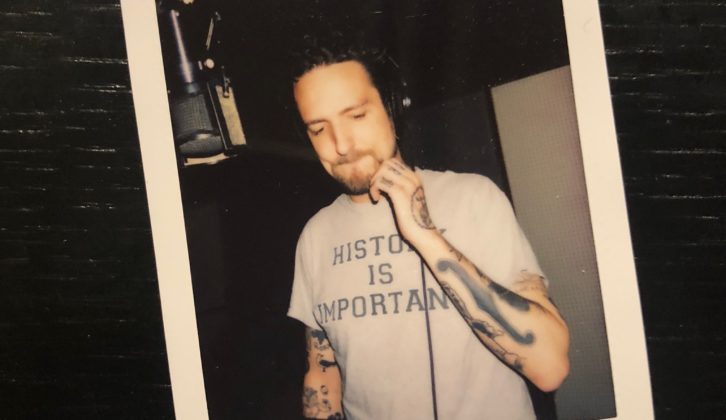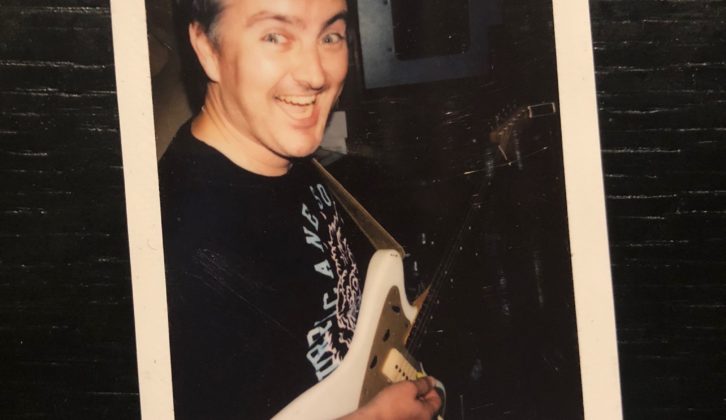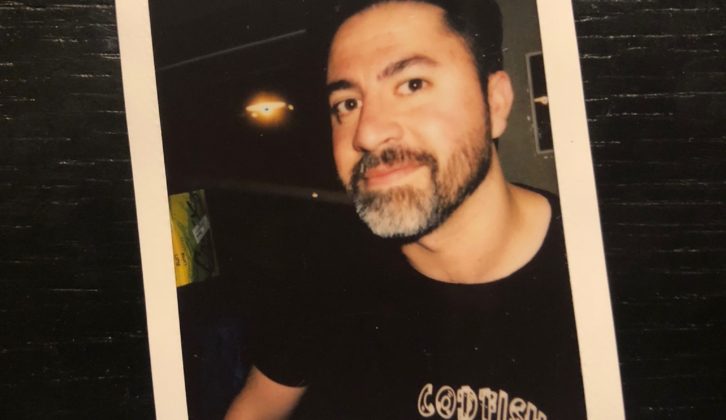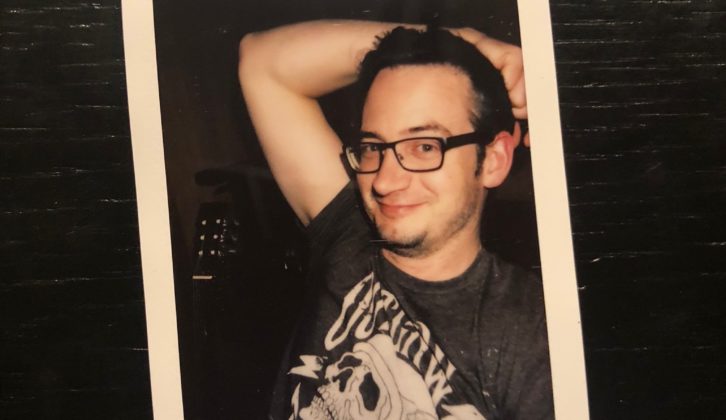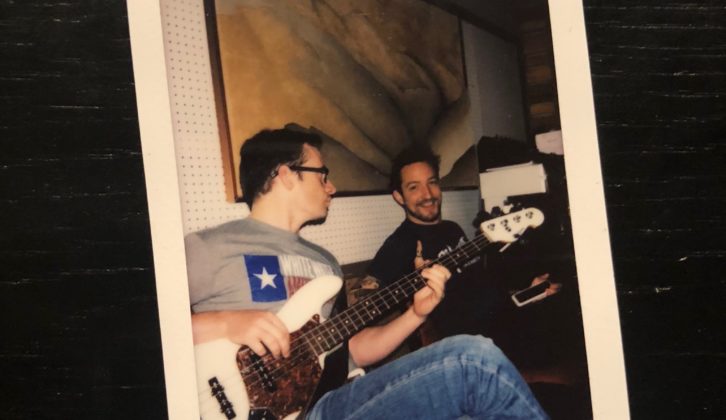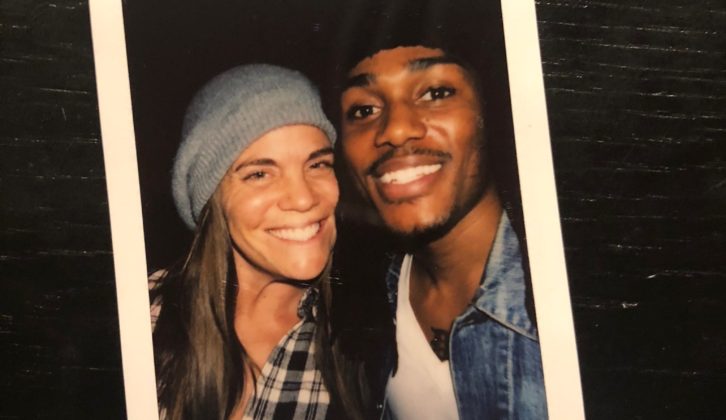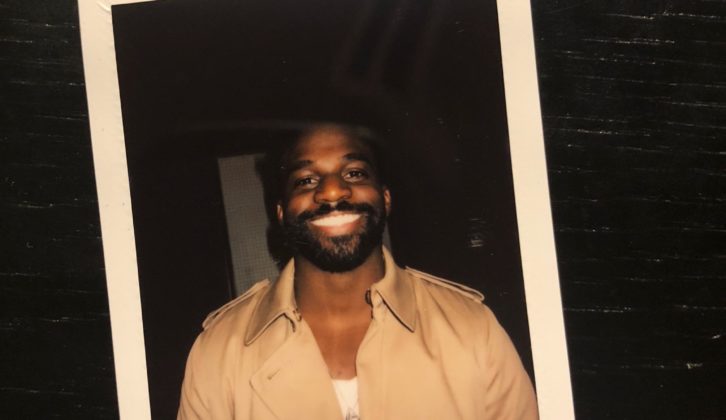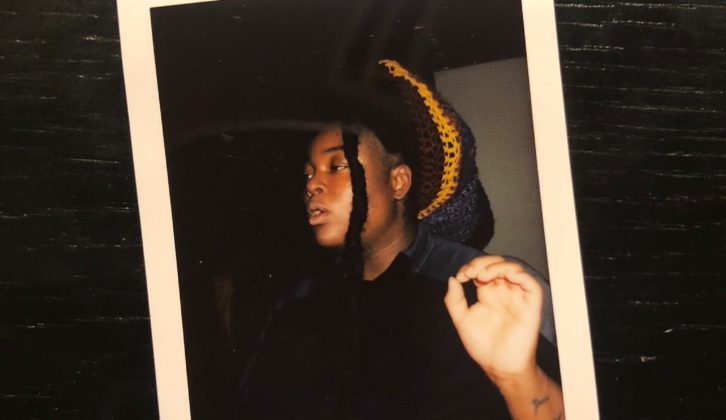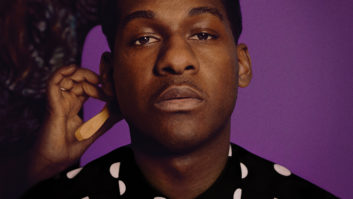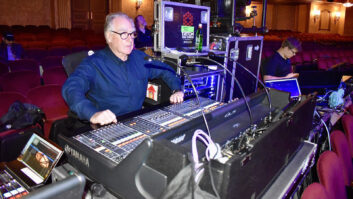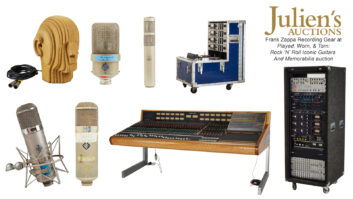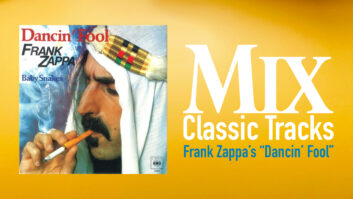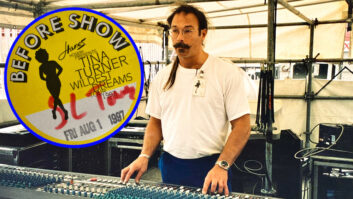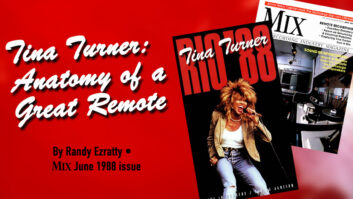For his seventh studio album, Be More Kind, punk folk hero Frank Turner wanted to do something different from his previous projects. He wanted to keep the key elements—his heartfelt lyrics and his rollicking backing band, The Sleeping Souls—but add some electronic elements to their sound. As Turner said in an interview with NME, “I started demoing for the record at home on a laptop. I got quite into that idea of using beats and loops as opposed to a traditionally more rock approach to rhythm.”
“He knew what his concept was and he had a plan on how to get it there,” says Joshua Block, co-producer of Be More Kind and co-owner of Niles City Sound, where the project was tracked. “The goal was ambitious—he has a deep love for electronic music, especially from a certain era. He really wanted his appreciation for that to come through, but not to lose his identity in it.”
It is interesting that he would bring this new electronic approach to Niles City Sound Studios in Fort Worth, Texas, which specializes in gear from 1948 through 1962. The studio is built around the legendary Altec 16-channel console from the Bradley Barn, used on sessions featuring Loretta Lynn, George Jones and Bob Dylan when Owen Bradley owned it, and artists such as The Lumineers and Dave Grohl in its stop at Sound City Studios before finding its way to Niles City.
Of course, there is more to Niles City than vintage analog gear. “It’s 2018—we’ve got a Pro Tools rig, and I’ve have a lot of experience working with music like that,” says Block. “I love to turn the computer off, put it in the corner and forget it exists, but we push for whatever concept the artist feels.”
Niles City Sound is co-owned by Block, Austin Jenkins and Chris Vivion. Block and Austin played together in the band White Denim before leaving to become full-time co-producers, joining with White Denim’s tour manager, Vivion. The studio features a large, configurable room that can accommodate a full band tracking live, and a warm atmosphere for artists.
“I suppose everybody that has a studio says this, but we really do put a lot of emphasis on creativity and performance at Niles City,” says Block. “Especially for artists like Frank where you know there’s a lot weighing on them, and it’s their name when they make a record.”
A Band Producing a Band
In addition to being Block’s partners in owning the studio, Jenkins and Vivion are also his co-producers on Be More Kind. They approach this three-person production team with a band-like mentality, working together and relying on each other’s strengths in any situation. It also allows the performers access to a producer at any time—if one or two are busy, the third will be there to help out.
Of course, it helps that the trio did work together as a band for quite some time before starting Niles City. “No matter what the responsibility or role is, we treat everything like we’re a band, like a real rock band that never breaks up,” says Block. “I view what Austin and Chris do as important as anything I could possibly do. Instead of hiring somebody who really doesn’t understand our process—I’ve got a crazy patchbay that you really need to know—it’s better for us all to understand and develop these projects together.”
Block, the former drummer for White Denim, is clearly the gear enthusiast. As for the others, he says, “Austin [former guitarist for White Denim] is fantastic—he’s a good director/arranger/writer. And Chris has got a really good sense of the business, and I like having somebody around that can keep everyone grounded. With Chris, I’ve never really had any studio experience where somebody who you’d expect to be the studio manager is sitting right there and everything is taken care of, and you don’t have to have those uncomfortable conversations while you’re in the studio.”
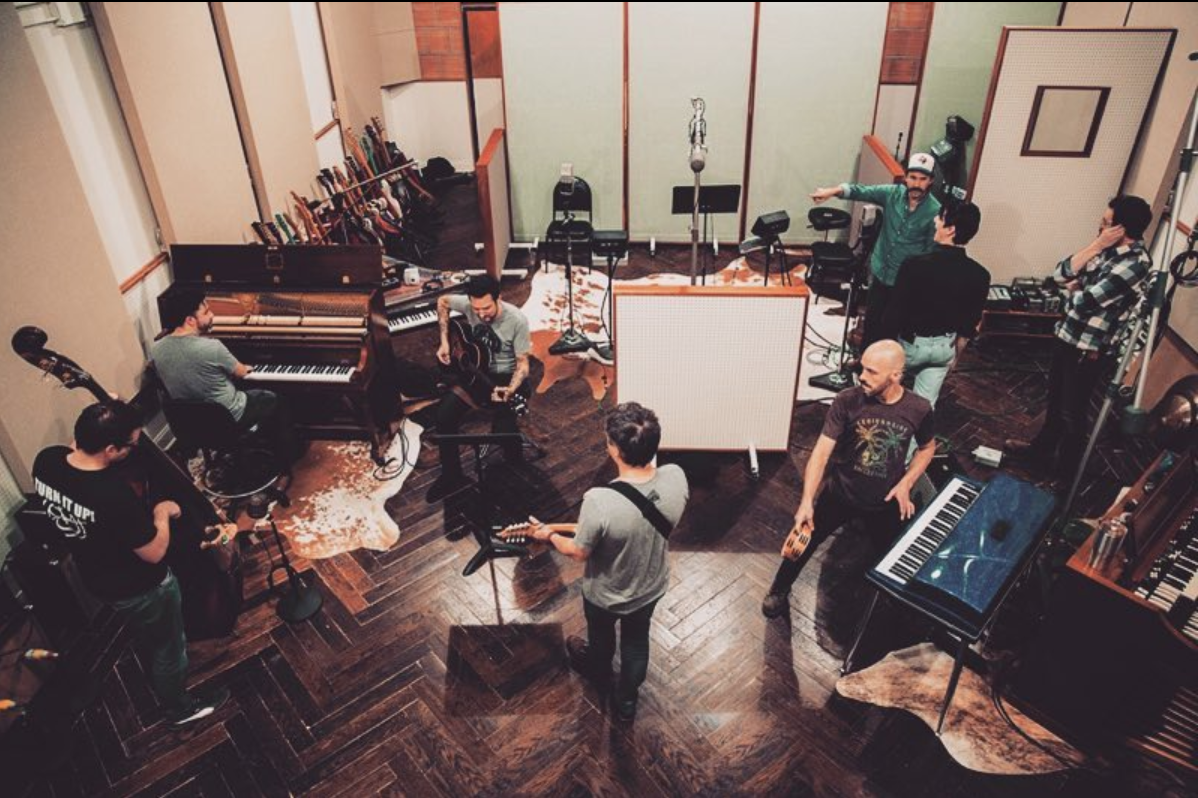
Powerful, Intimate Vocals
A hallmark of any Frank Turner song is the man’s vocal, which conveys his punk (Million Dead)/hardcore (Möngol Hörde) roots even when playing acoustically. That was a challenge on Be More Kind, but Block, after doing a few songs with Turner early in the process, was prepared when he came back to the studio several months after his initial sessions.
“The one thing about this record that I like is that there’s an intimacy to his vocals as opposed to what you get with normal rock vocals, which are kind of hard and placed forward and on top of the mix,” says Block. “I didn’t want to do what you have to do with a lot of rock singers, which is push them two feet away from the mic. I spent months scouring the internet for what would work—where he could stay close to the mic and still have that kind of intimate condenser sound. I sourced an original Neumann-Church U47 in front of him because those don’t blow out. He was five inches from the capsule, and it was like nothing changed. Pretty cool.”
For effects, Block runs the vocals through an old Collins 26U limiter/compressor.
For the acoustic guitars, another key element of a Turner record, Block used a pair of Lucas Engineering CS-1s, and if he wanted to go stereo, he would supplement them with a pair of Schoeps M221 small-diaphragm mics. “I put them next to each other on the various sources and picked the one that had the right vibe,” he says. “The Schoeps are a little too sweet at times to rely on them, but, for the rest of the record where the acoustic guitar didn’t need to be out so wide, it was heaven.”
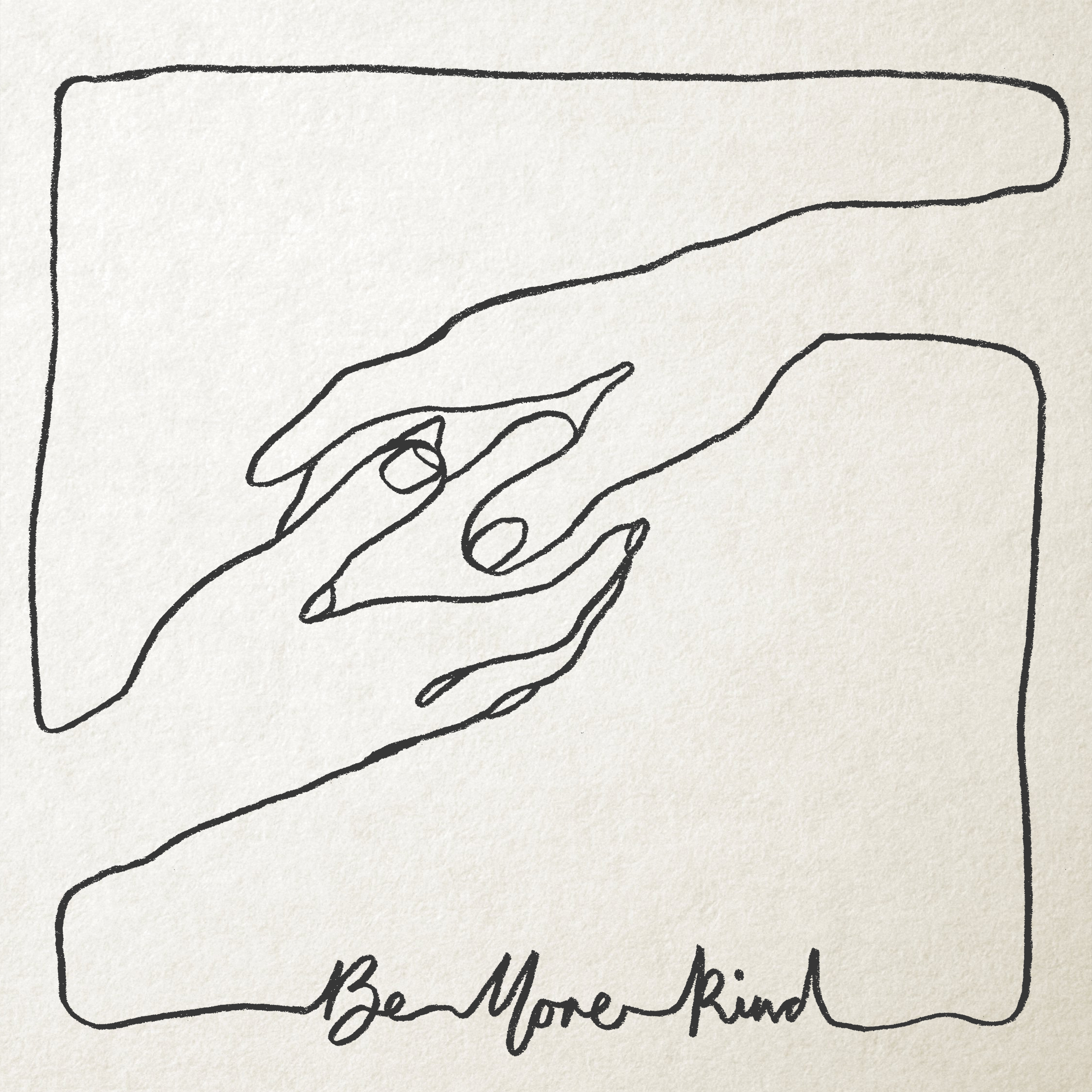
According to Block, Turner really loved to hear the playback for his guitars. “I really like when guitar players get excited when they hear the guitar back to speakers,” he says. “So, on electric guitars, I forego that Shure 57/Royer option and use a Sony CU2, which is a rare broadcast version of the C37A with an NHK logo. It is a super-cool, weird mic, and it works great on bass. For punchy things, you just put it up once, and there it is.”
Related: Leon Bridges, “Coming Home,” by Lily Moayeri, July 7, 2015
While the CU2 did the work on the front of the amplifier, Block miked the back of the cabinet with an AKG D45 with two capsules, and changed the configurations based on the song.
If you thought that, being a drummer, Block would pay particular attention to recording the percussion, you’d be right. “I went a little crazy during the first sessions—an AKG C12 above the kit, wide stereo pair, and all kinds of fun stuff,” he says. “But when they came back, I just did what I know best, which was an AEA R88 off the kit, just getting that really natural stereo vibe from those rhythms above the kit, and an RCA 44 in a cool spot next to the kit. On a lot of the songs I put the 44 in front of the kick so that there was a natural sound, but really exaggerated—angled, of course; I didn’t want to kill my 44!”
When adding the electronic elements, Block stayed true to his roots: “When you record to an 8- or 16-track machine, you make a lot of decisions,” he says. “Implementing an electronic element, we didn’t want to make a 1995 record. I still used all my mics, the Altec preamps, and my ’40s and ’50s compression. We still leaned on that because that stuff has balls. To me, the gear isn’t an era thing; it’s a process.”
Sticking the Concept
Be More Kind is clearly a Frank Turner album … and then some. From the raucous, more traditional Turner “1933,” to the more orchestral “Be More Kind” and “The Lifeboat,” to the electronic tones of “Make America Great Again,” this is clearly the work of an evolving artist—and of a creative production team working together to make it happen.
“You might think a lot of ideas were changed during production,” Block says, “but I think the concept has stayed pretty solid. It’s all the different ways we talked about doing it, but a bit moved around to better serve it.”
Niles City Sound • www.nilescitysound.com
Frank Turner • frank-turner.com
